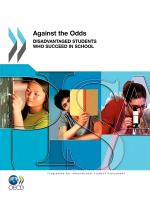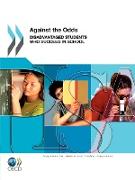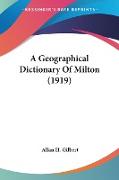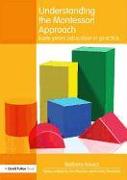PISA Against the Odds
BücherAngebote / Angebote:
Many socio-economically disadvantaged students excel in PISA. Students who succeed in school despite a disadvantaged background, known as resilient students, are the focus of Against the Odds. The book provides students, parents, policy makers and other stakeholders in education with insights into what enables socioeconomically disadvantaged students to fulfil their potential.The more hours disadvantaged students spend learning science at school, the better equipped they are to close the performance gap with their more advantaged peers. Resilient students are also found to have positive approaches to learning, including an active interest in science and greater self-confidence. However, the evidence in PISA shows that positive approaches to learning tend to boost the performance of advantaged students more than that of disadvantaged young people. From an equity perspective, the PISA results suggest that policies aimed at fostering positive approaches to learning should target disadvantaged students more than others. Chapter 1. PISA as a study of student resilience, Chapter 2. Defining and characterising student resilience in PISA, Chapter 3. A profile of student resilience, Chapter 4. Closing the gap? Enhancing the performance of socio-economically disadvantaged students, Chapter 5. Conclusions and policy implicationsTHE OECD PROGRAMME FOR INTERNATIONAL STUDENT ASSESSMENT (PISA)PISA focuses on young people's ability to use their knowledge and skills to meet real-life challenges. This orientation refl ects a change in the goals and objectives of curricula themselves, which are increasingly concerned with what students can do with what they learn at school and not merely with whether they have mastered specific curricular content. PISA's unique features include its: Policy orientation, which highlights differences in performance patterns and identifi es features common to high-performing students, schools and education systems by linking data on learning outcomes with data on student characteristics and other key factors that shape learning in and outside of school. Innovative concept of "literacy", which refers both to students' capacity to apply knowledge and skills in key subject areas and to their ability to analyse, reason and communicate effectively as they pose, interpret and solve problems in a variety of situations. Relevance to lifelong learning, which goes beyond assessing students' competencies in school subjects by asking them to report on their motivation to learn, their beliefs about themselves and their learning strategies. Regularity, which enables countries to monitor their progress in meeting key learning objectives. Breadth of geographical coverage and collaborative nature, which, in the PISA 2009 assessment, encompasses the 34 OECD member countries and 41 partner countries and economies.
Folgt in ca. 5 Arbeitstagen





